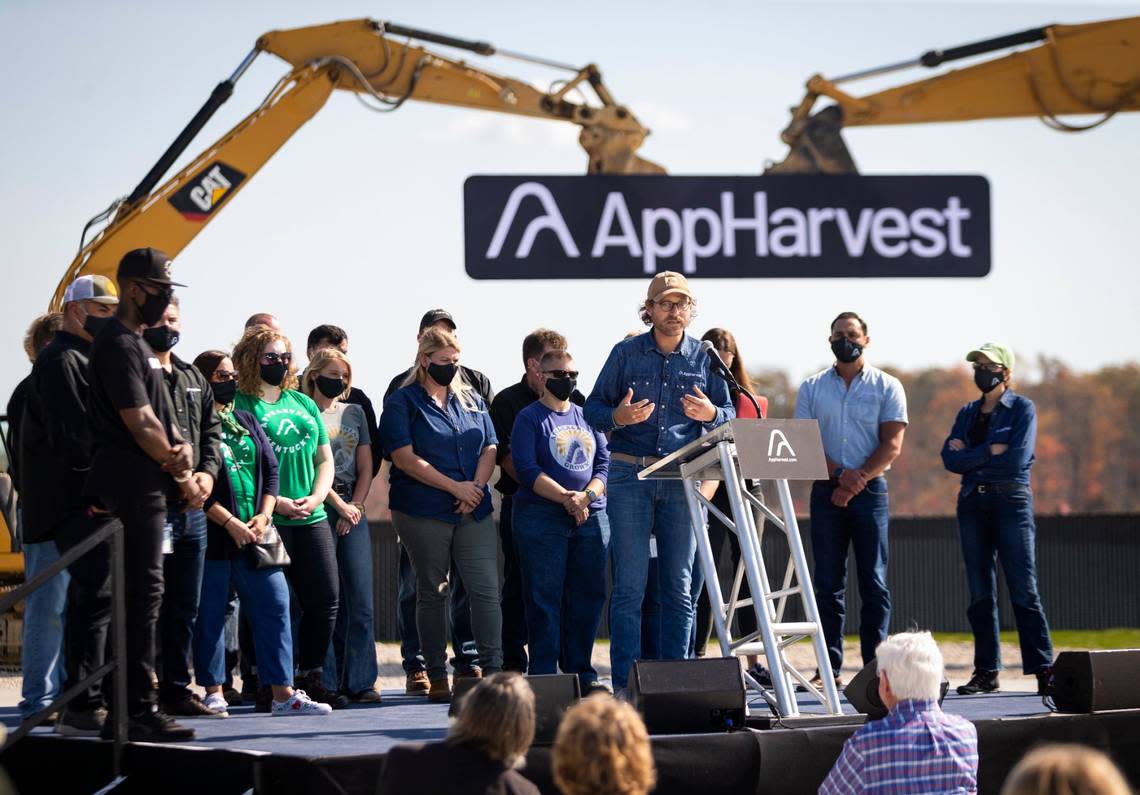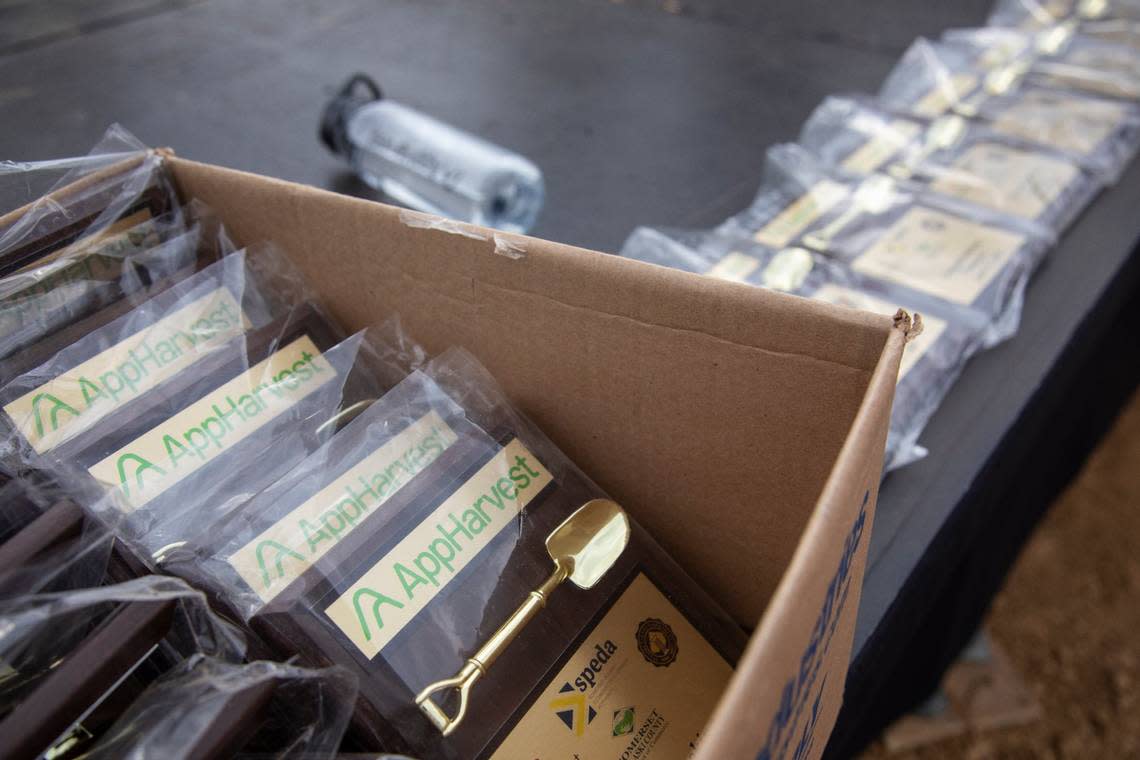A brief history of AppHarvest: Martha Stewart, big indoor farms, falling stock prices
January 2018: AppHarvest is incorporated by Jonathan Webb, a Kentucky native and University of Kentucky graduate who previously worked as a solar energy contractor for the U.S. Army Office of Energy Initiatives.
The board of directors would include lifestyle entrepreneur Martha Stewart as well as investor and Hillbilly Elegy author J.D. Vance, who was elected this month to the U.S. Senate as a Republican from Ohio. Stewart remains on the board, but Vance quit in 2021 after making controversial tweets.

The company announced plans to build 12 huge, high-tech, indoor farms to grow vegetables and fruit around Central Appalachia. But an initial site chosen in Pikeville, where 140 people would be employed on a reclaimed coal mine, was scuttled over concerns about the stability of the ground.

January 2019: AppHarvest starts a vocational training program for about 30 students at Shelby Valley High School in Pike County. The teens are meant to learn how to grow produce in a newly-constructed hydroponic facility that looks like a shipping container outside their school, to train them for careers in the industry.
AppHarvest later would open additional “container farms” at schools in Rowan, Elliott, Breathitt, Madison, Rockcastle, Martin, Menifee, Johnson and Fayette counties.
October 2020: AppHarvest partially opens its first farm in Morehead, where it grows tomatoes. Its corporate headquarters also opens in Morehead. The state of Kentucky approved $1.9 million in public funds to build an industrial access road for this facility in Rowan County, of which $1.55 million has been spent so far.
Three more farms would be built over the next two years in Berea, Somerset and Richmond, to grow leafy greens, berries and tomatoes, respectively.
January 2021: With the closure of downtown Lexington restaurant Hopcat on West Short Street, AppHarvest announces it will claim that street-front space in The Square along with several other suites in order to have an expanded corporate footprint in Kentucky’s second-largest city.
February 2021: AppHarvest reportedly raises close to $475 million as it goes public selling its stock on the NASDAQ exchange. Over the next two years, the company also would obtain four loans worth a total of $246 million, using its farms as collateral. The U.S. Department of Agriculture agreed to back one of those loans, worth $50 million.

August 2021: In a call with investors, AppHarvest announces disappointing second-quarter results from its first harvest, with net sales of only $3.1 million and reduced projected earnings for the full year. The company cites “labor and productivity challenges.” The company continues to operate with large losses to the present day.
September 2021: Following the bad financial news in August and the continuing drop in AppHarvest’s stock price, the company is hit with the first of five still-pending shareholder lawsuits in federal court. The plaintiffs allege that AppHarvest misled investors and regulators about how well it was prepared for its launch. The company disputes those claims and has asked for the suits to be dismissed.
November 2022: As part of a “restructuring,” AppHarvest announces the departures of President David Lee and Chief Operating Officer Julie Nelson, each of whom served less than two years. With an an accumulated deficit of $270 million, the company warns investors: “Management believes there is substantial doubt about our ability to continue as a going concern.”
Company officials say they are pursuing a deal to sell AppHarvest’s new Berea farm to its distributor, Mastronardi Produce Limited, for the necessary cash to continue. AppHarvest itself also could be acquired by another company, they say.
